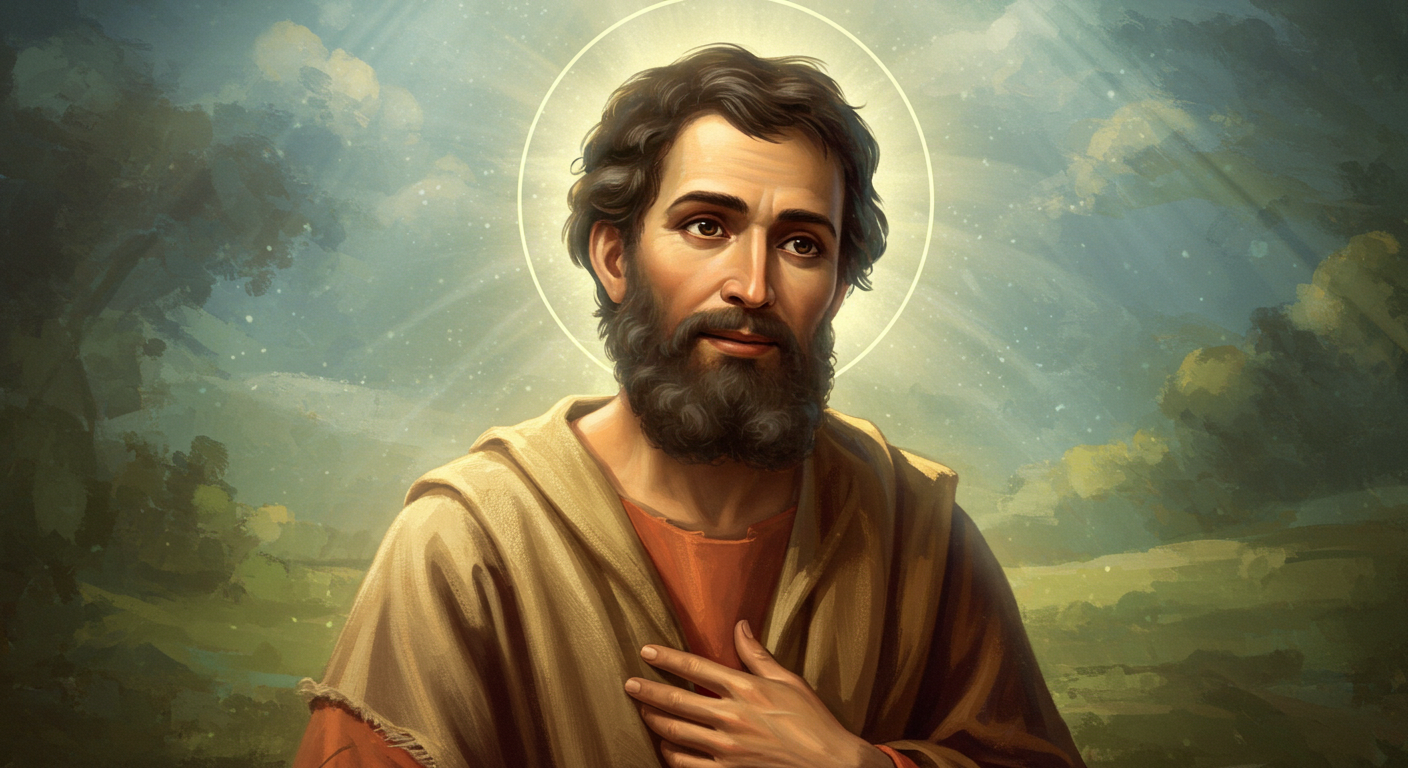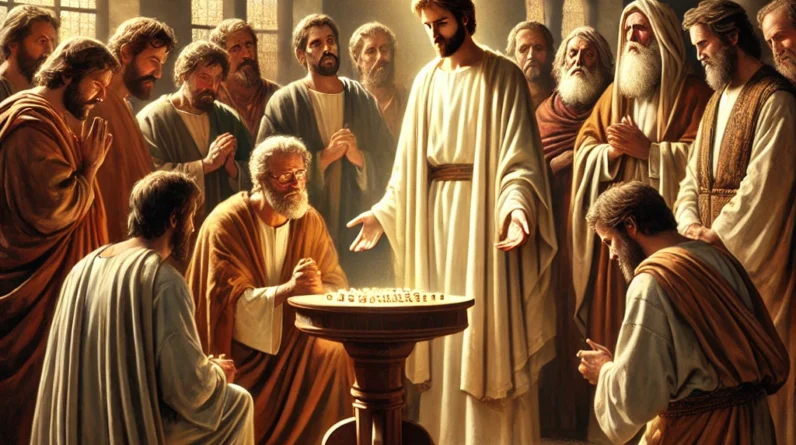Discover Bartholomew (Nathanael), a disciple of Jesus, whose journey from skepticism to faith reveals lessons on belief, legacy, and unwavering devotion.
Exploring Bartholomew (Nathanael): A Disciple of Christ
Have you ever contemplated the life-changing encounters people had with Jesus during His earthly ministry? Among these encounters, the calling of a man known as both Bartholomew and Nathanael stands out, inviting us into a story filled with faith and revelation. Who was this disciple, what role did he play, and what can his life teach us today? In this exploration, we delve into the life and legacy of Bartholomew (also known as Nathanael), one of the twelve disciples of Jesus. We’ll walk through the significant moments of his journey, from his first meeting with Jesus, through his role within the early Church, to the profound lessons his life story imparts on us today.
Who Was Bartholomew (Nathanael)?
Bartholomew also referred to as Nathanael in various Gospel accounts, carries a name meaning “son of Talmai” in Aramaic. Alternative readings present him as Nathanael, which translates to “God has given” in Hebrew. These names together reflect an identity rooted in heritage and divine favor, offering us insight into his character and the life he led. Not much is known about Bartholomew’s early life or occupation; however, he hailed from Cana in Galilee, a region familiar for its humble residents who participated in livelihoods such as fishing and farming. His first mention in the Bible takes place in the Book of John, where he emerges as an earnest seeker of truth, unafraid to express skepticism yet open to divine revelation.
📖 Bible Reference: John 1:45-46
Calling to Discipleship
The calling of Bartholomew to discipleship is an illustration of sincere revelation and the transformative power of faith over doubt. Introduced by Philip, another disciple of Jesus, Bartholomew is initially skeptical upon hearing of Jesus of Nazareth, famously questioning, “Can anything good come from there?” Yet, it is in this moment of skepticism that we see his openness, soon to be met with assurance as he accepts Philip’s invitation to “come and see” for himself. Upon meeting Jesus, He discerns Bartholomew’s honest character, calling him “a true Israelite, in whom there is nothing false.” This meeting shifts Bartholomew’s doubt to a profound recognition of Jesus as the Son of God, marking the start of his journey as a disciple who follows Him earnestly.
📖 Bible Reference: John 1:47-49
Notable Events and Actions
While the Gospels do not detail many specific acts of Bartholomew, his participation is implicitly woven into the fabric of events shared by the twelve disciples. His discernment and frankness, first witnessed during his calling, signify his strength—honesty in pursuit of truth—even when it means questioning and seeking further. A marked setting where he likely played a part includes the miraculous feeding of the multitudes and the distribution of missionary tasks among the disciples by Jesus, showcasing a communal endeavor dedicated to outreach and spiritual nourishment. Though individual stories may fade into the collective disciples’ narrative, Bartholomew’s openness and journey from skepticism to faith suggest a disciple who balanced doubt and belief with unwavering dedication.
📖 Bible Reference: Luke 9:10-17
Their Role in the Early Church
Following Jesus’ resurrection and ascension, Bartholomew is believed to have continued his ministry with unwavering conviction, embodying the Great Commission to spread the Gospel across nations. While scriptural accounts of his missionary journey are sparse, church tradition holds that Bartholomew traveled widely to share the message of Christ. His evangelistic work is associated with regions as varied and challenging as modern-day Armenia and India, a testament to his commitment and courage in bringing the Good News to diverse audiences. His legacy within the early Church is preserved by stories of perseverance, where living out his faith in challenging frontiers exemplified an openness to God’s lead and an unyielded mission to sow seeds of faith.
📖 Bible Reference: Matthew 28:19-20
How Did Bartholomew Die?
Turning to the conclusion of Bartholomew’s earthly journey, tradition suggests a martyr’s death, though specifics vary among historical accounts. Notably, many traditions recount his death in Armenia, where he was flayed alive and beheaded for his unwavering confession of faith in Christ. Although accounts differ regarding the exact manner of his martyrdom, the overarching narrative is one of steadfast faith in the face of persecution—a story mirrored in the experience of numerous early Christians whose lives were sealed in commitment to bearing witness to Jesus. Bartholomew’s death embodies the seriousness of discipleship, where the cost is often high, yet the impact on Christianity resonates far beyond his time, symbolizing courage and faithful service.

Lessons We Can Learn from Bartholomew
Bartholomew’s journey imparts rich lessons that remain relevant for believers today, particularly regarding the interplay between humility, doubt, and faith. His story encourages navigating skepticism with honesty, and remaining open to divine encounters that challenge our preconceptions and affirm our faith. His readiness to explore personal doubts transformed into profound belief offers a model of authenticity, reminding us of the significance of deep examination en route to unshakeable faith. Furthermore, his missionary zeal encourages living out one’s faith actively, bearing witness to Christ across various spaces of life. In embracing these lessons, we are called to cultivate a faith alive with questioning, sincerity, and action—a journey responding to Christ’s unrelenting call to follow Him.
📖 Bible Reference: James 1:5-6
Conclusion
Bartholomew (Nathanael), a disciple often shrouded in mystery, comes to life as a figure whose encounters with Jesus highlight themes of doubt, belief, and mission. His life urges us to confront our questions and reach for the assurance found in Christ, fostering a thriving faith that manifests in action and courage. As you reflect on Bartholomew’s journey, ponder this: How can you, too, follow Jesus with the same authenticity and wholehearted devotion? May his story inspire you to dive deeper into faith and action, drawing from his example to transform doubt into dynamic discipleship.
Acknowledgment: All Bible verses referenced in this article were accessed via Bible Gateway (or Bible Hub).







